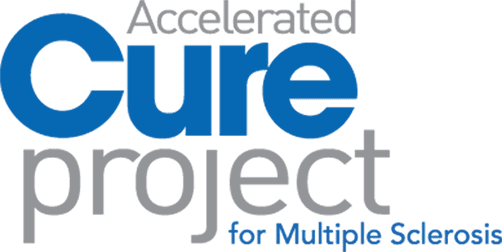People of all genders, ages, races and ethnicities require medical treatment. Medical research helps us learn what treatments work best for which people. It’s important for participants in clinical trials to “look like” the patients who may end up taking the treatments.
When research involves a group of people who are too much alike, the findings may not apply to or benefit everyone. Minority populations are severely underrepresented in MS research and clinical trials. A 2015 review showed that out of nearly 60,000 published articles about MS, only 113 (0.2%) focused on African American and 23 (0.04%) focused on Hispanic American people with MS. This could partly be due to past injustices that have led people in these communities to have less trust in clinical research than they otherwise might have. The end result is researchers and clinicians don’t have a good understanding of how MS affects minorities, and which treatments work best in these populations.
The MS Minority Research Engagement Partnership Network (MREPN) is a group, founded and led by the Accelerated Cure Project (ACP), that is dedicated to increasing diversity in MS research so that people of all ethnic and racial backgrounds can receive the best care.
The Network consists of a wide range of stakeholders involved in overcoming MS and health disparities, including advocacy partners, clinicians and researchers, industry representatives, minority health organizations, community organizers, business leaders, educators, faith institutions, and people with MS belonging to minority communities (both African American and Hispanic American). The MREPN website is a rich resource for anyone interested in participating in research. It contains helpful information on what to expect as a research participant, how research participants’ rights are protected and a listing of MS studies looking for participants. Also included is an MS Minority Health Hub which contains useful information, such as articles, reports and news about MS in minority communities.
In an effort to understand why the disparity in MS research exists, the MREPN designed and implemented a survey about research experiences and opinions. Over 2,500 people with MS from diverse backgrounds completed the survey. Results showed minority groups have specific concerns regarding mistrust, receiving poor-quality care, unemployment, health insurance, and legal status. Across all groups, the biggest concern about participating in research is not being fully informed about the study. African Americans are more concerned about being taken advantage of by the research team and about having their personal information released without approval. These findings shed light on the concerns that investigators must address in order to recruit a diverse population of subjects in their studies.
Members of the MREPN used survey results to develop three toolkits for the key stakeholders in the research process, aimed at boosting enrollment of minorities in MS research studies. The Community Partner Toolkit is designed to increase awareness about the importance of diversity in MS research and to give people from all racial and ethnic backgrounds the confidence and knowledge to explore available study opportunities. The Health Care Professionals Toolkit provides insight for healthcare providers into the reservations their patients may have about research participation and guidance on how to address them. This resource also contains information about current MS research opportunities. The Research Professionals Toolkit helps researchers better understand what is currently known about MS in different racial and ethnic minorities, sheds light on the perceptions and concerns people in different minority groups may have about research, and helps investigators reach out to these communities and work with them in ways that are culturally appropriate, effective, and mutually beneficial.
For those interested in participating in MS research, there are a number of studies that are currently looking for participants with MS from minority communities.
MS Research Opportunities for People of Color
iConquerMS is open to anyone who wants to help shape and accelerate MS research. In order to diversify its membership, the initiative has appointed a RIDE Council (Research, Inclusion, Diversity and Equity) that will come together with people in the MS community who belong to underrepresented groups, invite them to join the network, and brainstorm ideas on how to better serve their community.
The North American Research Committee on MS (NARCOMS) is a global registry of more than 38,000 people with MS that is focused on MS research, treatment, and patient education. It has supported past research analyses on MS in African Americans and Hispanics/Latinos.
The National African Americans with MS Registry is working to accurately estimate the number of Black people diagnosed with MS in the United States and their geographic distribution. With the data, researchers can identify any barriers to accessing quality healthcare in minority communities and develop strategies needed to undo any inequities that may exist.
The Multiple Sclerosis Genetic Susceptibility Project is a multi-center research study dedicated to better understanding the role of genetics in the development and progression of MS. The project includes an African American Study that is recruiting Black people on an ongoing basis to shed light on hereditary factors that may affect the course of the disease in this population.
Investigators in California, Florida and Puerto Rico are inviting Hispanics/Latinos diagnosed with MS within the last two years to participate in a study about the impact of genetics and culture on disease severity.
The Alliance for Research in Hispanic Multiple Sclerosis is recruiting Hispanic Americans for a study about factors that affect MS risk and experience.
The CHIMES study is underway to better understand how Ocrelizumab (Ocrevus) helps Black/African American and Hispanic/Latino people with MS. This study is designed to bridge participation gaps in previous clinical trials for this treatment.
Events of the past year have unexpectedly shed light on the racial disparities that exist in research and society, in general. A recent study shows that the COVID-19 pandemic has impacted communities of color more severely.
This has led to a sense of urgency surrounding enrolling minorities in vaccine clinical trials. Community leaders are emphasizing the necessity of diversity and inclusion in research and how important it is for minorities to participate in studies. The murder of George Floyd and the Black Lives Matter movement has significantly increased awareness of racial injustices and inequities in all dimensions of life, including the disparities that exist in MS research. There’s growing recognition of the conditions in minority communities that not only affect an individual’s access to healthcare, but also their ability to participate in research. As a result, researchers are starting to think more about what they are doing that is limiting who can participate clinical trials.
ACP founded the MREPN in October 2016 and has led the initiative since its inception. In light of the current climate, the network is taking stock of where things stand and brainstorming to determine the most effective way to have the most impact in the future. Members are pondering such important questions as can the MREPN communicate a sense of urgency about overcoming inequities in MS research? Can the group promote transparency and accountability? Can the network be more effective at disseminating successful approaches and best practices? Can the initiative exert some influence on decision makers toward this end? The MREPN is digging deep into these questions as they develop strategies and solutions to promote research participation among racial and ethnic minority groups. This will ensure that MS research findings apply to and benefit people of all racial backgrounds and all individuals living with MS can receive the best care possible. Are you a researcher looking for insights into how to diversify your research? Are you a healthcare provider looking for resources to use to engage your patients of color in conversation about research participation? Are you a person affected by MS who wants to learn more? Please email us at msminorityresearch@acceleratedcure.org. We welcome new perspectives and are happy to answer any questions you might have!


